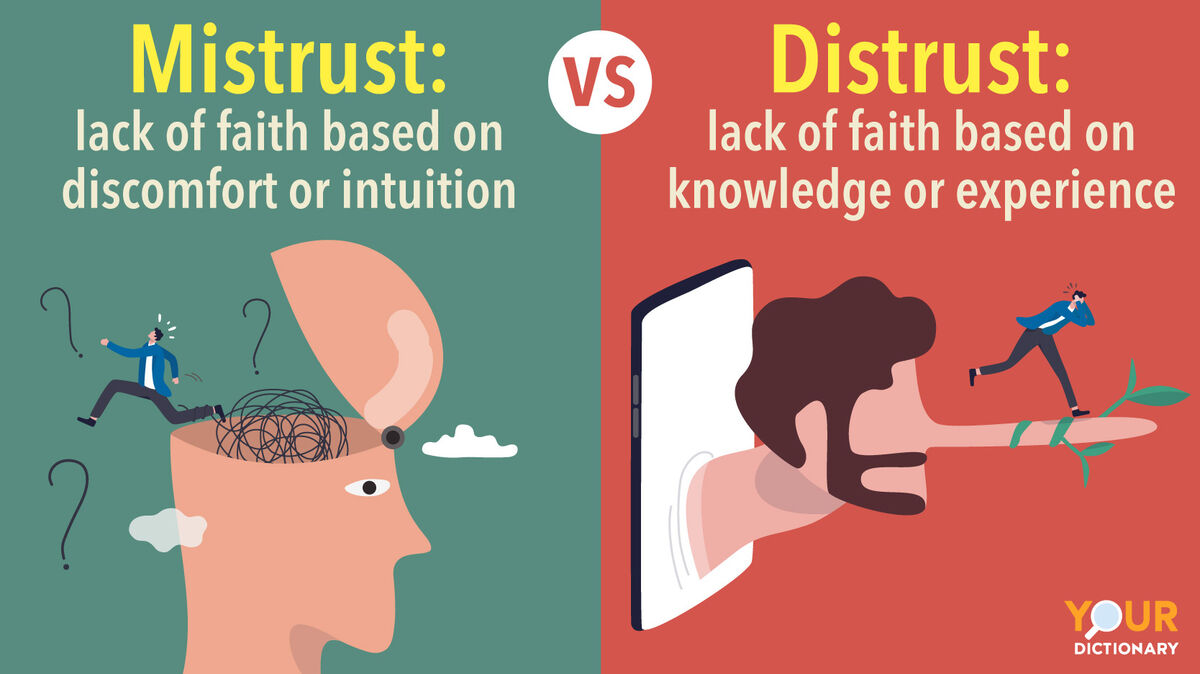
Do you mistrust someone or distrust them? Both words refer to a lack of trust or to not trusting someone or something. Whether or not they can be used interchangeably is often a matter of confusion or debate. Explore the subtle differences between mistrust and distrust and when and how to use each term in a sentence.
The Difference Between Mistrust and Distrust
The word trust was first recorded sometime in the 12th century. It is derived from the Old Norse traust (trust) and the subsequent German word trost ("comfort" or “consolation”). Eventually, the prefixes mis- and dis- were applied to trust to form the words mistrust and distrust. Although their meanings are similar, the subtle differences influence how they are used in a sentence.
mistrust - lack of faith in someone or something based on discomfort or intuition
distrust - lack of faith in someone or something based on knowledge or experience of that person or thing
Tips to Remember the Difference Between Distrust and Mistrust
What subtly differentiates distrust from mistrust is that distrust applies to an informed opinion, prior knowledge or experience. In contrast, mistrust is based on unease and wariness that is due to intuition rather than knowledge or experience that tells you you should not trust someone.
To remember the difference, you can associate these terms with other words that begin with the same prefixes.
- If you distrust someone you may feel disturbed or disgusted by their actions.
- If you mistrust a person, it could be because they are mischievous or maybe you have simply mischaracterized them.
Usage and Meaning of Mistrust
The term mistrust was first recorded in the late 14th century. The prefix mis- means “ill” or “wrong.” Mistrust can be used interchangeably with distrust when referring to a lack of trust in someone. However, if you want to be more specific you should apply mistrust to instances where you are acting based on instinct or feeling.
There is mistrust between me and my co-workers, but I don't know why.
I mistrust strangers because I don't know them.
He mistrusts modern technology because it's unfamiliar to him.
How to Use Distrust
The word distrust dates back to the 16th century. The prefix dis- means “apart” or “away.” As a verb, distrust means “to not trust” or “withhold trust.”
They had a mutual distrust of each other based on past experiences.
Distrust grew between the friends after one of them betrayed the group.
She distrusted him after catching him in a lie.
Distinguish Between dis- Words
Many words that begin with the prefix dis- are easy to confuse, but this doesn't have to be the case. Discover other terms beginning with dis- such as discreet and discrete. Then check out how the meaning changes when you change the prefix from dis- to un- like in disinterested and uninterested.